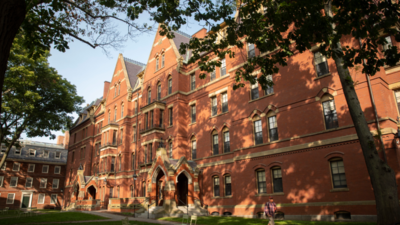
The concept of a gap year has long been a topic of spirited debate. For some, it evokes images of a missed academic year and delayed progress, while for others, it represents an unmatched opportunity for growth and exploration. The term itself often stirs apprehension among students and parents alike, raising concerns about wasted time or losing academic momentum. Yet, in today’s rapidly evolving world, taking a gap year is no longer viewed as a setback—it’s increasingly recognized as a strategic move, one that colleges often value.
Far from being a year of inaction, a well-planned gap year can unlock opportunities to gain hands-on experience, refine personal goals, and build a compelling narrative for college applications. In fact, leading U.S. institutions like Harvard actively encourage students to defer enrollment for a year, understanding the transformative potential such an experience can bring. It’s time to dispel the myths surrounding gap years and explore how this bold choice can set students up for success, both in higher education and beyond.
U.S. College Admissions: Why a gap year can be your secret weapon for success
U.S. college admissions have grown more competitive, with students vying for limited spots at prestigious institutions. A well-structured gap year can significantly enhance students’ application, often giving them a competitive edge. Here’s how:
Strengthens Your Narrative
Colleges value authenticity and unique experiences. A gap year provides students with opportunities to build a compelling personal narrative. Whether it’s volunteering for an international non-profit or developing a new skill, these experiences can be highlighted in essays and interviews to demonstrate individuality and ambition.
Showcases Initiative and Leadership
Admissions committees are drawn to students who exhibit leadership qualities. A gap year spent launching a community project, interning at a startup, or leading a fundraising campaign not only boosts resumes but also demonstrates initiative, time management, and problem-solving skills.
Enriches Cultural Understanding
Cultural experiences gained through international travel or exchange programmes allow students to develop a broader worldview. These experiences make students more well-rounded and better equipped to contribute to the diversity of a college campus.
Enhances Mental Resilience
Burnout is a common issue among students transitioning from high school to college. A gap year offers the opportunity to decompress, reflect, and build mental stamina. This preparation often results in students who are more focused and motivated once they begin college.
Offers an Edge in Deferred Admissions
Many universities, including Ivy League institutions like Harvard, encourage gap years and even offer deferrals to admitted students. Such policies underline the growing recognition of how these experiences contribute to a student’s growth and success in college.
6 Ways to Make Maximum Your Gap Year
While a gap year can be transformative, its success lies in planning and execution. To ensure maximum benefits, students should approach this time with clear goals and a structured plan. Here are some ways to make the most of it.
Set Clear Objectives
Before diving into a gap year, outline what you hope to achieve. Whether it’s academic improvement, skill-building, or personal growth, having clear objectives helps you choose activities that align with your goals.
Participate in Gap Year Programmes
Enroll in structured programmes that align with your interests and aspirations. Many organizations offer gap year options such as environmental conservation projects, teaching internships, and leadership training initiatives. These programmes provide guided learning experiences and foster meaningful connections with like-minded peers.
Engage in Meaningful Activities
A productive gap year should involve purposeful experiences. Volunteering, internships, or learning new skills like coding, languages, or creative writing can add depth to your profile and prepare you for college life.
Document Your Journey
Keep a record of your experiences, whether through a journal, blog, or portfolio. Not only does this help you track your growth, but it also provides concrete examples to share in college essays and interviews.
Pursue Internships or Research Opportunities
Working in a professional environment or participating in research projects allows you to gain real-world experience. These experiences demonstrate a proactive attitude and a willingness to engage in hands-on learning.
Consider Travel with a Purpose
Traveling isn’t just about seeing new places; it’s about learning from them. Engage in cultural exchange programmes, attend workshops abroad, or volunteer in underserved communities. These experiences can broaden your perspective and contribute to your personal narrative.




